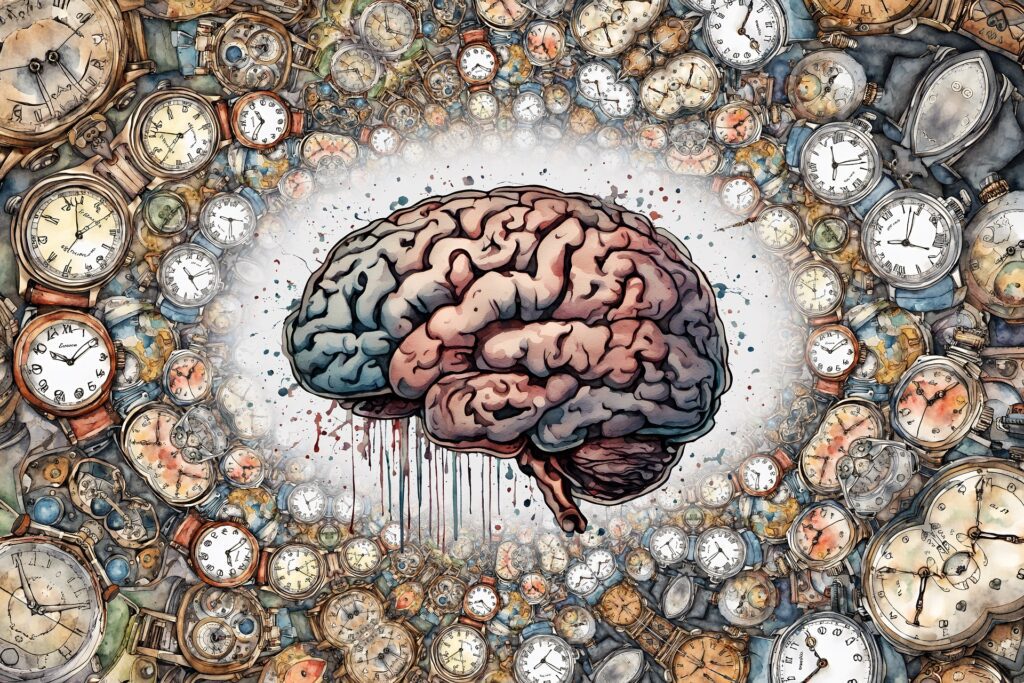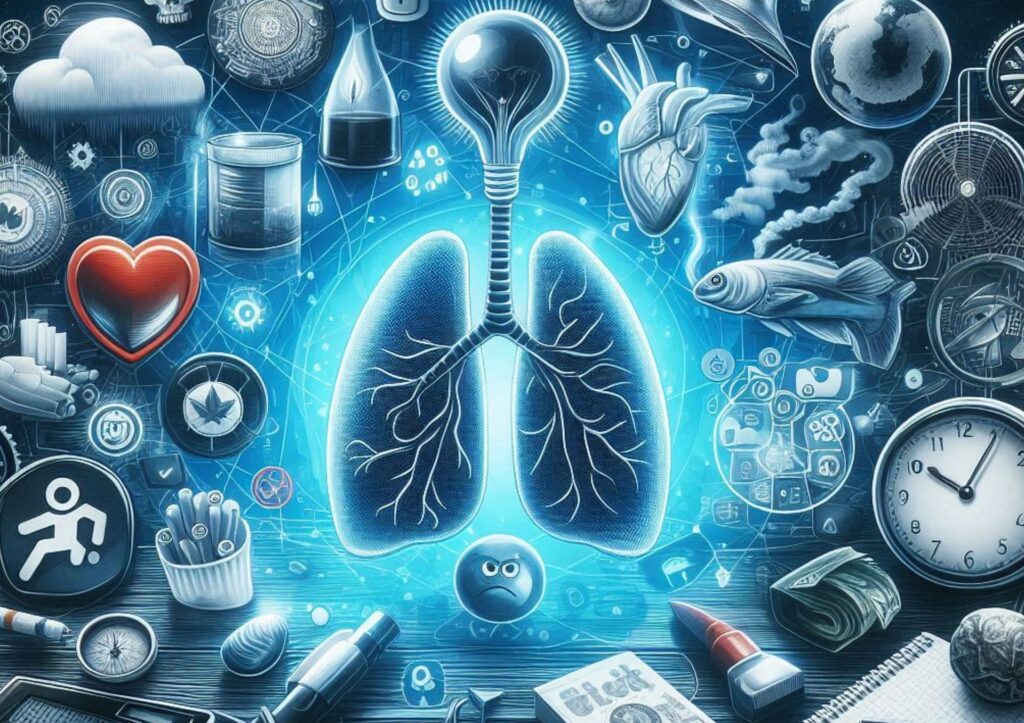Table of Contents

Introduction
Understand Addiction is a multifaceted and intricate condition that has a profound impact on the lives of millions of people around the globe. It is characterized by the persistent and compulsive engagement in rewarding stimuli, despite the presence of negative consequences.
The concept of addiction extends beyond substance use disorders, such as alcohol and drug addiction, to encompass behavioral addictions like gambling or internet use. This blog aims to explore the psychological intricacies of addiction, diving into its causes, the cycle it tends to follow, its effects on individuals and society, and the process of recovery. Through this comprehensive exploration, we aspire to cultivate a deeper understanding of addiction and to motivate those who are struggling to seek the help they need. (Understand Addiction)
Understanding Addiction
The psychology of addiction is complex and multifaceted. It involves an interplay of biological, psychological, and environmental factors that contribute to the development and maintenance of addictive behaviors. Two primary types of addiction are recognized: substance addiction and behavioral addiction.(Understand Addiction)
Substance Addiction vs. Behavioral Addiction
Substance addiction, which is more commonly known, involves the misuse of drugs or alcohol, resulting in both physical and psychological dependence. It is often accompanied by a preoccupation with obtaining and using the substance, despite the negative impact on one’s health and social life. Behavioral addiction, on the other hand, refers to persistent and compulsive behaviors that can cause significant impairment in an individual’s daily functioning. These behaviors include gambling, shopping, and internet addiction, among others.
While substance and behavioral addictions may differ in their specific manifestations, they share a common psychological foundation. Both types of addiction are driven by the brain’s reward system, which reinforces behaviors that induce pleasure or relief. This system is crucial for learning and motivation, but when hijacked by addictive substances or behaviors, it can lead to patterns of compulsion that are difficult to break.(Understand Addiction)
The Central Role of the Brain in Addiction
The brain is the epicenter of addiction. When an individual engages in addictive behavior, whether it is the use of a substance or the performance of a rewarding activity, the brain’s reward circuitry is activated. This circuitry involves the release of neurotransmitters such as dopamine, which produces sensations of pleasure and reinforcement. With repeated exposure to the addictive substance or behavior, the brain’s reward system undergoes changes that can lead to tolerance. Tolerance is a condition where the individual requires increasing amounts of the substance or behavior to achieve the desired effect.(Understand Addiction)
Moreover, the brain may also undergo structural changes as a result of addiction. These alterations can impair the brain’s ability to regulate mood, impulses, and decision-making, making it difficult for the individual to resist the urge to engage in addictive behavior. Additionally, withdrawal symptoms occur when the substance or behavior is reduced or ceased, which can be both physically and psychologically distressing, further entrenching the cycle of addiction.(Understand Addiction)


The Genesis of Addiction
The causes of addiction are manifold and interrelated. They can be broadly categorized into genetic, environmental, and psychological factors.(Understand Addiction)
1. Genetic Factors
Research has consistently indicated that genetics are a substantial factor in the development of addiction. Individuals with a family history of addiction are more likely to experience similar issues themselves. Genetic predispositions can influence how a person’s body processes substances, their propensity to develop dependence, and their susceptibility to environmental triggers. It is essential to recognize that while genetics may increase the risk of addiction, they do not determine it entirely.
2. Environmental Influences
The environment in which an individual is raised and the experiences they encounter can significantly affect their vulnerability to addiction. For instance, early exposure to addictive substances or behaviors can alter the brain’s reward system, making it more likely that they will seek out these experiences in the future. Moreover, stressful life events, such as trauma or abuse, can increase the risk of developing an addiction as a means of coping with emotional pain. Peer pressure, the presence of addiction in one’s social circle, and the ease of access to substances or addictive behaviors are also environmental factors that can contribute to the onset of addiction.(Understand Addiction)
3. Psychological Factors
Mental health disorders often co-occur with addiction. Conditions such as depression, anxiety, and post-traumatic stress disorder (PTSD) can play a significant role in the development and perpetuation of addictive behaviors. Individuals may use substances or engage in compulsive behaviors as a way to self-medicate and find relief from their emotional distress. Certain personality traits, such as impulsivity and the need for intense sensations, can also increase the likelihood of engaging in addictive behaviors.


The Cycle of Addiction
Addiction tends to follow a cyclical pattern that can be incredibly challenging to break. This cycle typically includes the following stages:
1. Initiation
The cycle begins with the initial exposure to the addictive substance or behavior. This may stem from social influences, curiosity, or a desire to escape from negative emotions. At this stage, the individual may not recognize the potential for addiction.
2. Regular Use
As the individual continues to engage in the behavior, it can become a regular part of their life. They may begin to develop a tolerance to the substance or behavior, requiring more frequent or intense engagement to achieve the desired effect.
3. Dependence
Over time, psychological and physical dependence may develop. Dependence is marked by the presence of withdrawal symptoms when the substance or behavior is not accessible. These symptoms can be so unpleasant that the individual feels compelled to continue their addiction to avoid them.
4. Addiction
At this stage, the individual’s life revolves around their addiction. They may prioritize the substance or behavior over other aspects of their life, such as relationships, work, and health. Despite the severe consequences of their addiction, they may feel unable to quit.(Understand Addiction)
The Repercussions of Addiction
The impact of addiction is vast and extends far beyond the individual. Recognizing these repercussions is crucial for addressing addiction as a public health crisis.
1. Physical and Mental Health Consequences
Addiction can lead to a multitude of health issues, including liver disease, cardiovascular problems, and an increased risk of infectious diseases, especially among those who inject drugs. Additionally, mental health disorders are often exacerbated by addiction, with individuals experiencing heightened levels of anxiety, depression, and thoughts of suicide.(Understand Addiction)
2. Social and Interpersonal Consequences
Relationships with family, friends, and colleagues are frequently strained by addiction. The individual may withdraw from their support network or engage in behavior that damages trust and communication. This isolation can lead to significant emotional pain for both the individual and those around them.
3. Financial and Legal Consequences
The financial burden of addiction is often immense. The cost of substances or compulsive behaviors can lead to debt and financial instability. Furthermore, legal issues may arise due to substance-related offenses or actions taken under the influence of addiction, potentially resulting in incarceration.
The Road to Recovery
Recovery from addiction is a complex and deeply personal process that tends to progress through several stages.(Understand Addiction)
1. Precontemplation
In the precontemplation stage, the individual may not recognize the severity of their addiction or be willing to consider change. They may be unaware of the negative impact their behavior is having on their life.
2. Contemplation
During contemplation, the individual begins to acknowledge their addiction and weigh the pros and cons of altering their behavior. This stage is often fraught with ambivalence as they grapple with the desire for change and the fear of the unknown.
3. Preparation
The preparation stage involves making a commitment to change and developing a plan for achieving sobriety. This may include researching treatment options and building a support system.
4. Action
The action stage is characterized by the actual implementation of changes aimed at overcoming addiction. This may involve entering treatment programs, participating in therapy, and employing strategies to manage cravings and avoid relapse triggers.(Understand Addiction)
5. Maintenance
Once an individual has made significant progress in recovery, the maintenance stage begins. This phase requires ongoing effort to sustain sobriety and prevent relapse. It may involve continued therapy, support group attendance, and the cultivation of healthy coping mechanisms.


Therapeutic Approaches to Addiction
Effective treatment for addiction is typically multifaceted and tailored to the individual’s unique needs. Some common treatment modalities include:
1. Behavioral Therapies
Behavioral therapies are central to addiction treatment. These therapies are designed to modify the maladaptive behaviors and thought patterns associated with addiction.
– Cognitive-Behavioral Therapy (CBT): CBT assists individuals in identifying and challenging negative thought patterns and developing healthier ways of coping with stress and other triggers.
– Contingency Management: This approach employs positive reinforcement to encourage sobriety and celebrate progress in treatment.
– Motivational Interviewing: This client-centered technique helps individuals explore their motivations for change and resolve any ambivalence they may feel about entering recovery.(Understand Addiction)
2. Medication-Assisted Treatment (MAT)
MAT combines medication with counseling and behavioral therapies to provide a holistic approach to treatment. It is particularly effective for opioid and alcohol use disorders. Common medications include:
– Methadone: Used to mitigate opioid withdrawal symptoms and cravings, methadone is a synthetic opioid that occupies the same receptors in the brain without producing the intense high of other opioids.
– Buprenorphine: A partial opioid agonist, buprenorphine helps manage cravings and withdrawal symptoms by activating opioid receptors without the risk of overdose associated with full agonists.
– Naltrexone: This medication blocks the effects of opioids and alcohol, reducing the desire to use these substances.
3. Support Groups and Peer Support
The support of others who have experienced addiction is invaluable in the recovery process. Support groups like Alcoholics Anonymous (AA) and Narcotics Anonymous (NA) provide a structured environment where individuals can share their experiences and find encouragement.
SMART Recovery is another option that emphasizes self-empowerment and self-directed change through evidence-based strategies. These groups offer a sense of belonging and validation that can be crucial for maintaining sobriety.(Understand Addiction)
4. Holistic Approaches
Holistic treatment recognizes the importance of treating the whole person—body, mind, and spirit. It may incorporate various practices such as:
– Exercise and Nutrition: Engaging in regular physical activity and maintaining a balanced diet can bolster overall health and support recovery.
– Mindfulness and Meditation: These practices can enhance an individual’s ability to manage stress and foster greater self-awareness.(Understand Addiction)
– Art and Music Therapy: Creative therapies provide alternative avenues for self-expression and healing.
Guarding Against Relapse
Relapse is a common hurdle in the recovery journey. Developing a robust relapse prevention plan is essential for long-term sobriety. Key components of such a plan include:
1. Identifying and Managing Triggers
Individuals must recognize the specific cues that can precipitate cravings or relapse. These triggers can be internal, such as emotional states, or external, such as specific people or places.(Understand Addiction)
2. Creating a Relapse Prevention Plan
A detailed relapse prevention strategy outlines the actions to take when faced with temptation or challenging situations. This may involve specific steps to manage cravings, such as reaching out to a sponsor or engaging in a distraction technique.(Understand Addiction)
3. Seeking Support During Vulnerable Periods
Maintaining connections with support networks and mental health professionals is vital. Individuals should not feel ashamed to seek help when they are feeling overwhelmed or at risk of relapse.(Understand Addiction)
The Pivotal Role of Family and Friends
The support of family and friends is instrumental in the recovery process. Loved ones can help in several ways:
1. Providing Emotional Support and Understanding
An empathetic and non-judgmental ear can be a lifeline for someone in recovery. Validating their feelings and offering encouragement can significantly bolster their resolve.
2. Establishing Healthy Boundaries and Encouraging Recovery
While it is essential to be supportive, it is also critical to set clear boundaries that promote recovery. This means avoiding enabling behaviors that could hinder progress.(Understand Addiction)
3. Engaging in Family Therapy and Support Groups
Addressing underlying family dynamics and improving communication can be beneficial for everyone involved. Support groups for friends and family members offer insights, resources, and strategies for coping with the challenges of loving someone in recovery.(Understand Addiction)
Conclusion
Addiction is a multifaceted condition that requires a nuanced understanding to effectively address. By delving into the psychological underpinnings of addiction, we can better appreciate the challenges faced by those in its grip. The path to recovery is fraught with hurdles, but with the right combination of treatments, support, and personal commitment, it is possible to break the cycle and regain control of one’s life. It is imperative that we, as a society, continue to educate ourselves about addiction and offer compassion and assistance to those who are struggling. Only through a collaborative and informed approach can we hope to diminish the pervasive impact of addiction on individuals, families, and communities.(Understand Addiction)